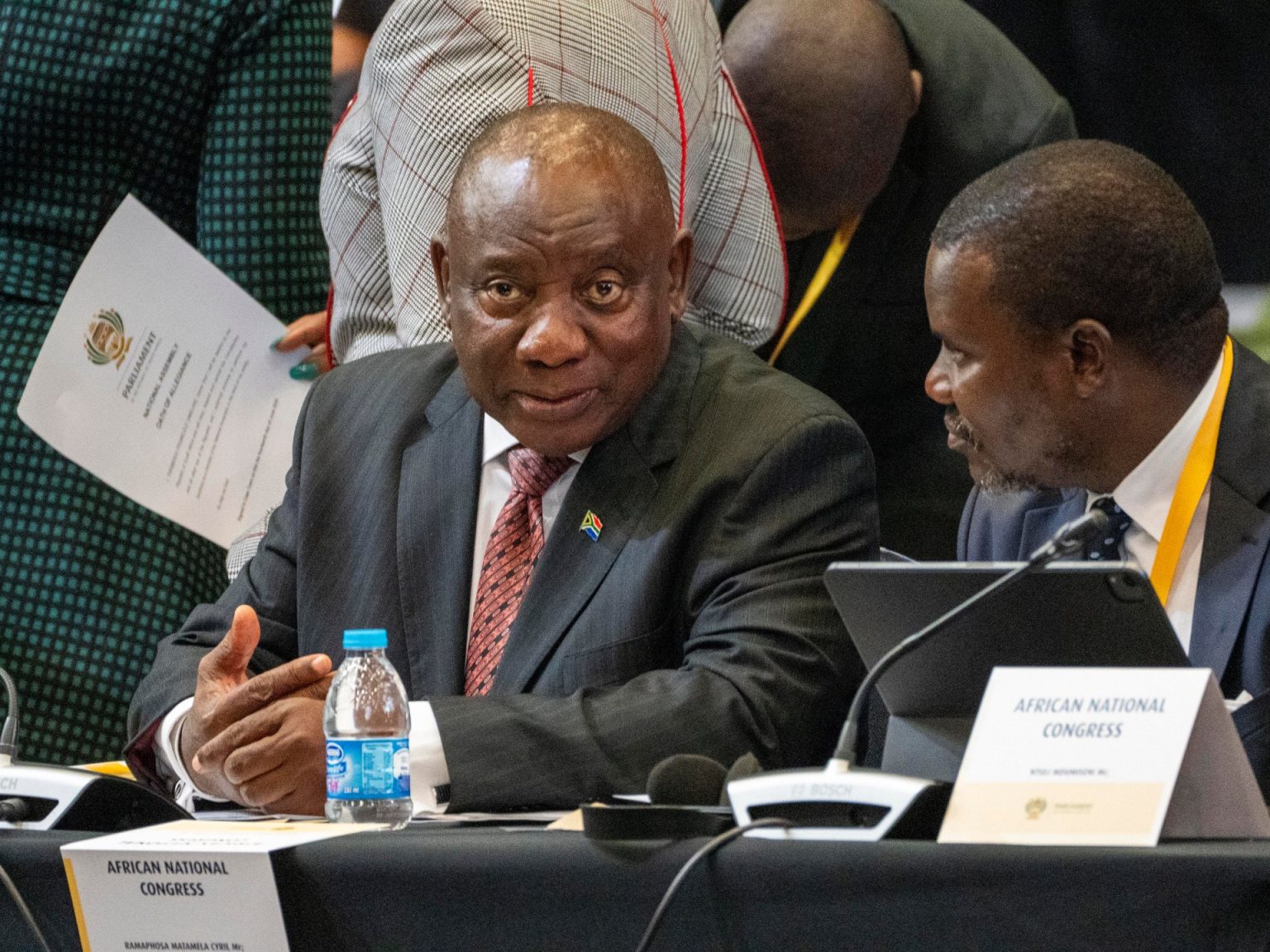Late-night negotiations and an eleventh-hour agreement led to the formation of South Africa’s first-ever coalition government, with President Cyril Ramaphosa at its head. The multiparty coalition signed its agreement after marathon negotiations and back-and-forth calls between Ramaphosa and leaders of other parties. The ANC, the Democratic Alliance, and the Inkatha Freedom Party came together to form the coalition government after the ANC suffered its worst electoral decline in 30 years. The ANC holds 159 of 400 seats in parliament, short of the 201 seats needed for a majority. The left-leaning Economic Freedom Fighters and former President Jacob Zuma’s uMkhonto weSizwe refused to join the government.
The right-leaning DA, with 21 percent of the seats in parliament, is now the ANC’s main partner in government with the support of the nationalist IFP. The parties agreed to an eight-page framework that would govern their unity government, with decisions requiring “sufficient consensus” among the coalition partners. The parties also agreed to 10 fundamental principles focused on economic growth, respect for the constitution, and opposition to racism and sexism. Former DA leader Tony Leon described the talks as “very hard,” but said trust would be crucial for the coalition government to function effectively.
The agreement signed on Friday did not specify which parties would occupy specific positions in the government. Ramaphosa has until Wednesday to determine the appointments. While he has the authority to appoint ministers and deputy ministers, he must consult leaders of other parties in the coalition before doing so. Professor Pierre de Vos of the University of Cape Town expressed concerns about the implications of a coalition government for the country’s governance, suggesting that the ideological differences between the ANC and the DA could pose challenges, particularly on issues such as inequality and racism.
Analysts believe that the coalition government could lead to a moderation of both the ANC and the DA, moving them towards the political center. JP Landman, a political analyst, suggested that the coalition agreement could push the ANC away from the left towards the center and the DA away from the extreme right. Despite the potential challenges and ideological differences, the formation of the coalition government marks a significant shift in South African politics. The parties recognized the need for unity and consensus to address the country’s pressing challenges, including economic growth and social issues.
Moving forward, the coalition government will face a range of complex issues requiring collaboration and compromise among the diverse parties involved. The next five years are expected to be challenging, with trust playing a crucial role in ensuring the functionality of the coalition government. Despite uncertainties and concerns, the establishment of South Africa’s first coalition government represents a new chapter in the country’s political landscape, demonstrating a willingness to set aside differences and work together towards shared goals. Time will tell how effective this coalition government will be in addressing the country’s longstanding issues and driving sustainable progress for all South Africans.












